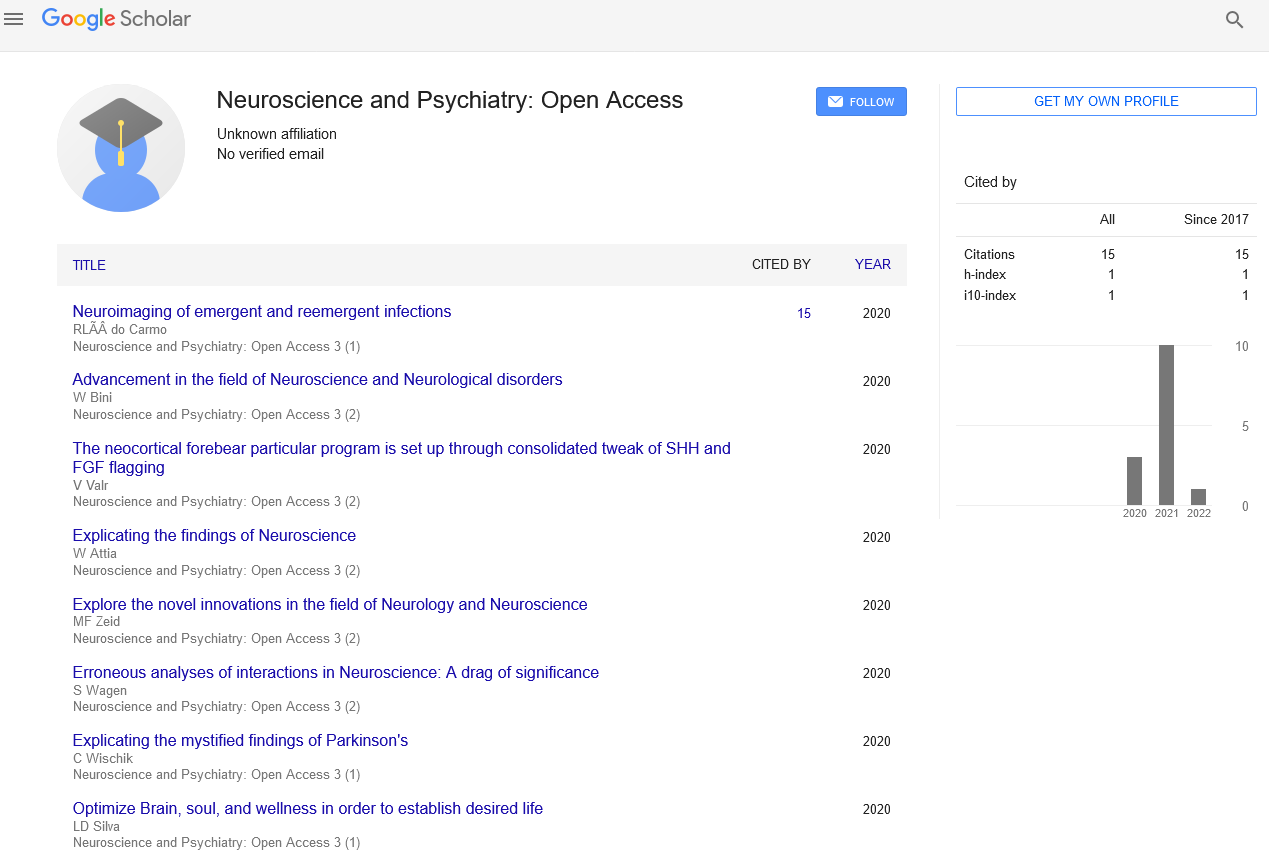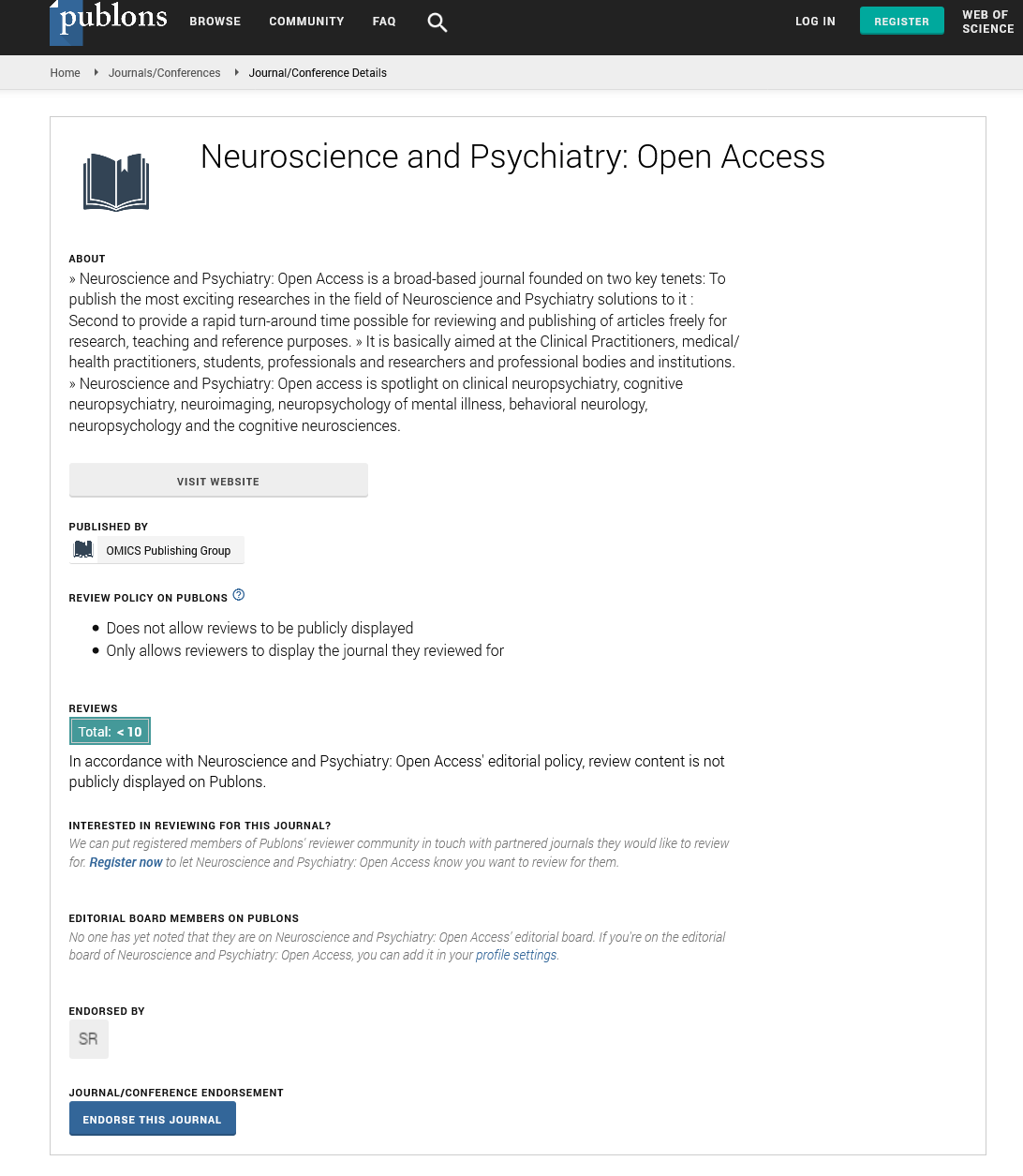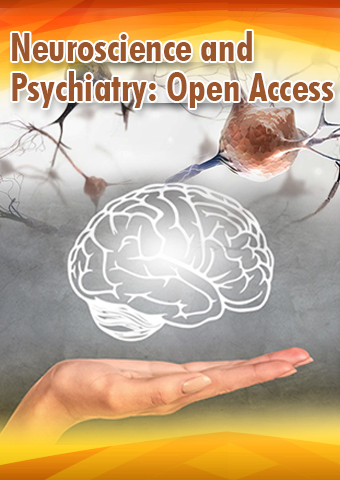Editorial - Neuroscience and Psychiatry: Open Access (2023) Volume 6, Issue 3
The Importance of Socio-Economic Research: Unveiling the Dynamics of Human Progress in Societies and Economies
Rong Yan*
Department of Medical Science, University of France Science and technology
Department of Medical Science, University of France Science and technology
E-mail: rongy@gmail.co.in.edu
Received: 02-06-2023, Manuscript No. npoa-23-101691; Editor assigned: 05-06-2023, Pre QC No. npoa-23- 101691; Reviewed: 19-06-2023, QC No. npoa-23-101691; Revised: 23-06-2023, Manuscript No. npoa-23- 101691 (R); Published: 30-06-2023; DOI: 10.37532/npoa.2023.6(3).50-52
Abstract
Socio-economic research holds immense significance in unraveling the multifaceted dynamics of human progress within societies and economies. By examining the interplay between social structures, cultural norms, individual behaviors, and economic systems, this interdisciplinary field offers valuable insights into the factors shaping societal development. Through rigorous analysis of data and the application of robust methodologies, socioeconomic research seeks to understand patterns, trends, and causal relationships within societies and economies. This article explores the key objectives of socio-economic research, including the exploration of inequality and poverty, analysis of labor markets and employment, evaluation of public policies, assessment of social mobility, study of consumer behavior, and investigation of globalization and development. Furthermore, it highlights the impact of socio-economic research on policymaking and societal development, emphasizing its role in informing evidence-based policies that promote social progress, economic growth, and human well-being. The article underscores the interdisciplinary nature of socio-economic research, encouraging collaboration between experts from various fields to address complex societal challenges comprehensively. Ultimately, socio-economic research plays a vital role in uncovering the intricate dynamics of human progress, providing a solid foundation for informed decision-making and the pursuit of inclusive and sustainable development.
Keywords
Socio-economic research • Human progress • Societies • Economies • Inequality • Poverty • Labor markets • Employment • Public policies • Social mobility • Consumer behavior • Globalizatio • Development • Policymaking • Societal development
Introduction
Socio-economic research serves as a critical tool in comprehending the intricate dynamics of human progress within societies and economies [1]. This interdisciplinary field delves into the complex relationship between social structures, cultural norms, individual behaviors, and economic systems, providing invaluable insights into the factors that shape societal development [2]. By employing rigorous analysis and robust methodologies, socio-economic research aims to unravel patterns, trends, and causal relationships within societies and economies, shedding light on the fundamental drivers of progress [3]. Understanding the dynamics of human progress necessitates a holistic approach that recognizes the interplay between social and economic factors [4]. Socio-economic research goes beyond traditional economic analysis by considering the broader social context in which economic activities take place [5]. It recognizes that societal structures, power dynamics, cultural values, and institutional frameworks significantly influence economic outcomes and the well-being of individuals and communities. One of the primary objectives of socio-economic research is to explore the pervasive issue of inequality within societies. By examining disparities in income, wealth, education, healthcare, and access to resources, researchers can identify the root causes and consequences of inequality. This knowledge is instrumental in formulating policies and interventions aimed at addressing and mitigating the adverse effects of inequality, fostering a more equitable and inclusive society [6]. Moreover, socio-economic research plays a crucial role in analyzing labor markets and employment dynamics. It examines the complexities of job creation, wage differentials, job security, and labor market segmentation [7]. By understanding these dynamics, researchers can provide insights into how labor markets function and identify opportunities to enhance employment opportunities, improve working conditions, and reduce unemployment. Evaluating public policies is another vital aspect of socio-economic research [8]. Through rigorous analysis, researchers assess the impact and effectiveness of various policies related to education, healthcare, social welfare, taxation, and more. This evidence-based approach helps policymakers make informed decisions, identify areas for improvement, and design policies that maximize societal benefits. Understanding social mobility, the ability of individuals or families to move up or down the social ladder, is another critical focus of socio-economic research. By investigating the factors that facilitate or hinder mobility, such as education, access to opportunities, and social networks, researchers provide insights into promoting equal opportunities and reducing intergenerational income and wealth gaps. Furthermore, socio-economic research examines consumer behavior and its implications for the economy [9]. By studying factors influencing purchasing decisions, preferences, and consumption patterns, researchers provide valuable insights to businesses in developing effective marketing strategies. Additionally, policymakers can use this knowledge to design regulations that protect consumer rights and promote sustainable consumption patterns. Socio-economic research also plays a pivotal role in analyzing the impact of globalization on societies and economies [10]. It examines trade patterns, foreign direct investment, cultural exchange, and the distribution of benefits and costs. By understanding these dynamics, policymakers can harness the benefits of globalization while mitigating its negative impacts, ensuring sustainable development.
Materials and Method
Socio-economic research employs a wide range of materials and methods to unravel the dynamics of human progress in societies and economies. These materials and methods vary depending on the specific research objectives, data availability, and research context. Here, we provide an overview of some commonly used materials and methods in socio-economic research.
Understanding socio-economic research: Socio-economic research seeks to examine the interplay between society and the economy, recognizing that these two domains are deeply intertwined. By analyzing data and employing rigorous methodologies, researchers can identify patterns, trends, and causal relationships within societies and economies. The ultimate aim is to shed light on how socio-economic factors shape the well-being and livelihoods of individuals and communities.
Key objectives of socio-economic research: Exploring Inequality and Poverty: Socioeconomic research investigates the root causes and consequences of inequality and poverty within societies. It examines disparities in income, education, healthcare, and access to resources. By identifying the underlying mechanisms behind these inequities, researchers can propose effective policies and interventions to address them. Analyzing Labor Markets and Employment: Understanding the dynamics of labor markets is crucial for policymakers and stakeholders. Socio-economic research examines employment patterns, wage differentials, job security, and labor market segmentation. It helps in formulating policies that foster inclusive growth, reduce unemployment, and improve working conditions.
Evaluating public policies: Socio-economic research evaluates the impact of various public policies and programs on society and the economy. Through rigorous analysis, researchers assess the effectiveness, efficiency, and equity of policies related to education, healthcare, social welfare, taxation, and more. Such evaluations are essential for evidence-based policymaking and identifying areas for improvement.
Assessing social mobility: Socio-economic research examines social mobility, which refers to the ability of individuals or families to move up or down the social ladder. It investigates the factors that facilitate or hinder mobility, such as education, access to opportunities, and social networks. Understanding social mobility patterns helps design policies that promote equal opportunities and reduce intergenerational income and wealth gaps.
Investigating globalization and development: Socio-economic research explores the effects of globalization on economies and societies worldwide. It examines trade patterns, foreign direct investment, cultural exchange, and the distribution of benefits and costs. By understanding these dynamics, policymakers can maximize the benefits of globalization while minimizing negative impacts and promoting sustainable development.
Impact on policymaking and societal development: Socio-economic research plays a crucial role in informing policymaking processes. Policymakers rely on evidence-based research to develop effective strategies that address socioeconomic challenges. By utilizing rigorous methodologies and analyzing vast amounts of data, researchers can provide policymakers with actionable recommendations and help them anticipate the consequences of policy interventions.
Conclusion
Socio-economic research holds immense importance in unveiling the complex dynamics of human progress within societies and economies. Through the exploration of various socio-economic factors, such as inequality, labor markets, public policies, social mobility, consumer behavior, and globalization, researchers provide valuable insights that inform evidence-based policymaking and contribute to societal development. Evaluating public policies is another key aspect of socio-economic research, enabling researchers to assess the impact and effectiveness of various policies related to education, healthcare, social welfare, taxation, and more. This evidence-based approach assists policymakers in making informed decisions, identifying areas for improvement, and designing policies that maximize societal benefits. Through its interdisciplinary nature, socio-economic research encourages collaboration between experts from various fields, facilitating a holistic understanding of complex societal challenges. By addressing issues related to inequality, labor markets, public policies, social mobility, consumer behavior, and globalization, socioeconomic research contributes to the betterment of societies, fostering social progress, economic growth, and human well-being.
References
- Campbell, Malcolm. Urban Consumption,edited by Peter W.Newton. Urban Res Pract. 5, 369-371 (2012).
- Schmutter, Katherine, Nash et al. Ocean acidification: assessing the vulnerability of socioeconomic systems in Small Island Developing States. Reg Environ Change. 17, 973-987(2016).
- Escosura, Leandro Prados. Augmented human development in the age of globalization. Econ Hist Rev. 74, 946-975 (2021).
- Gasper Des. Is Sen's capability approach an adequate basis for considering human development?. Rev Int Polit Econ. 14, 435-461 (2002).
- Sen, A. Development: Which Way Now?. Econ J. 93, 745-762 (1983).
- Wesseling, Henk. History: Science or art?. Eur Rev. 6, 265-267(1998).
- Carneiro, Robert L. A Theory of the Origin of the State. Science. 169, 733-738 (1970).
- Szathmáry, E. Toward major evolutionary transitions theory. Proc Natl Acad Sci. 112, 10104-10111 (2015).
- Jablonka, Szathmáry. The evolution of information storage and heredity. Trends Ecol Evol. 10, 206-211 (1995).
- Linquist, Stefan, Machery. Exploring the folkbiological conception of human nature. Philos Trans R Soc Lond B Biol Sci. 366, 444-453 (2011).
Indexed at, Google Scholar, Crossref
Indexed at, Google Scholar, Crossref
Indexed at, Google Scholar, Crossref
Indexed at, Google Scholar, Crossref


